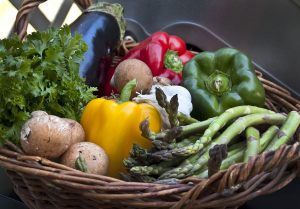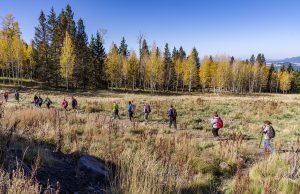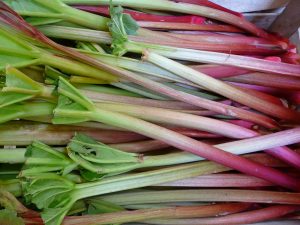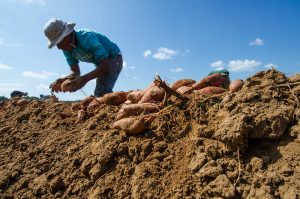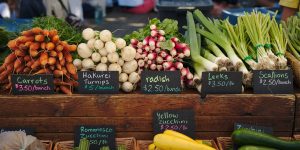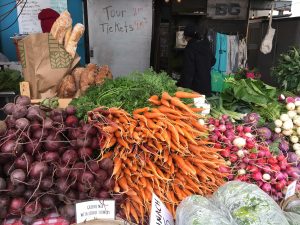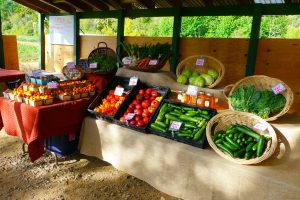Just Food Project: Facilitator Toolkit
Dear food justice educator,We believe that a critical part of engaging in food justice pedagogy is centering equity in our teaching practice. While there are limits to the scale and scope we can enact change in our classrooms, we as students and instructors strive to uphold equitable guiding principles, outlined in this guide.
Just Food Project: Food Justice Primer
Food justice represents “a transformation of the current food system, including but not limited to eliminating disparities and inequities” that constrain food choices and access to good food for all.
Just Food Project: Diasporic Foodways
“First you lose your costume. Then you lose your language. The last thing that you lose is your food.” – Patricia Klindienst.This quote is drawn from a chapter titled ‘Place’ (Chapter 3) in the book, The Earth Knows My Name, where a Polish American vintner and a Japanese American berry farmer speak to the complexities around land ownership, cultivating food and immigration.
Just Food Project: Migrant Labour
When we think about labour and food, who are the faces that appear in our minds? Developed country’s food systems rely on a racialized workforce where BIPOC bodies represent the majority of low wage, low skill, high risk jobs. This includes both immigrant and migrant labourers in meat-packing/food processing plants, farms and fast-food restaurants.[8] This module primarily focuses on a Canadian context and employs migrant labour as a way of unpacking key concepts in labour, racializing processes, and food systems.
Just Food Project: Local Food Movement
This case study will guide learners to think critically about the local food movement, who it benefits, excludes, and its potential to transform the food system.
Just Food Project: Food Systems Governance
This case study is intended to be a starting point for exploring food systems governance with a focus on the growing role of philanthropic organizations in international agricultural development.
Just Food Project: Gender, Equity and Food Security
This case study explores relationships between food, gender and social justice through feminist and queer lenses. Food insecurity disproportionately affects womxn, trans, queer, and non-binary people.
